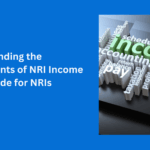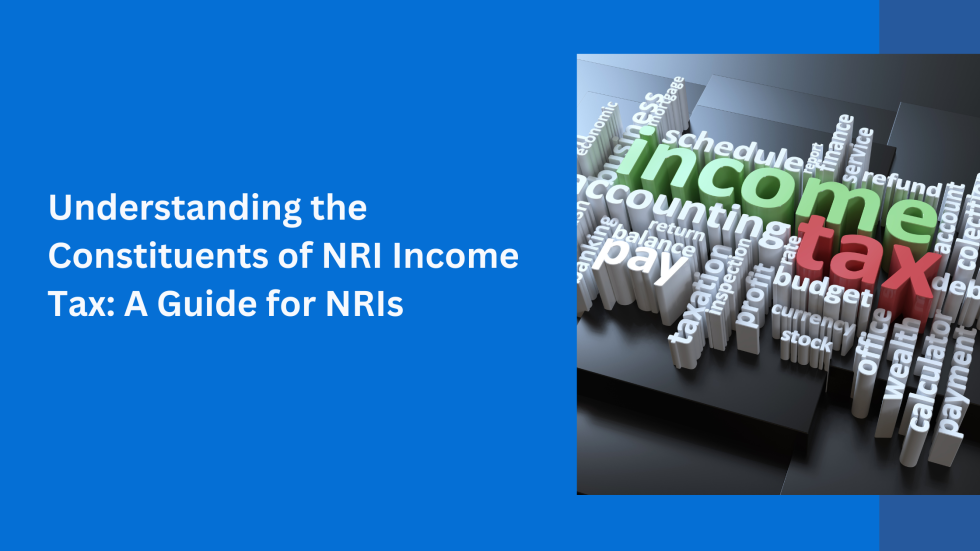Understanding tax exemption for NRIs on long-term capital gains (LTCG) is crucial when selling property or other long-term assets in India. Sections 54 and 54F of the Income Tax Act offer tax exemptions for NRIs when they reinvest the capital gains from the sale of property or assets into purchasing or constructing a new residential property in India. This guide will break down the details of both sections, explaining how they work and how NRIs can maximize their tax benefits.
What is Section 54 and Section 54F?
- Section 54 offers tax exemptions for NRIs who sell residential property and reinvest the proceeds in buying or constructing a new residential property in India.
- Section 54F applies to NRIs who sell non-residential properties (such as land, shares, or bonds) and reinvest the capital gains in purchasing or constructing a new residential property.
Key Provisions of Section 54 for NRIs
Eligibility: This exemption is available when an NRI sells a long-term residential property (held for more than 24 months) and reinvests the capital gains in a new residential property.
Timeframe for Reinvestment:
- The property must be purchased within 1 year before or 2 years after the sale.
- Construction must be completed within 3 years of the sale.
Investment in Two Properties: NRIs can invest in two residential properties (provided the capital gains are less than ₹2 crores).
Exemption Revocation: If the new property is sold within 3 years, the exemption will be revoked, and the capital gains will be taxed as short-term capital gains.
Key Provisions of Section 54F for NRIs
Eligibility: Section 54F applies when NRIs sell non-residential assets such as land, shares, or bonds. The capital gains must be reinvested in a new residential property.
Timeframe for Reinvestment:
- Purchase must occur within 1 year before or 2 years after the sale.
- Construction must be completed within 3 years of the sale.
Exemption Amount: NRIs can get a full exemption if the entire sale amount is reinvested. A partial exemption applies if only part of the sale proceeds is reinvested.
Restriction on Property Ownership: To claim the exemption, the NRI cannot own more than one residential property (apart from the new one) at the time of sale.
Section 54 vs. Section 54F: Key Differences
| Basis | Section 54 | Section 54F |
| Type of Asset on Sale | Residential property | Non-residential assets (land, shares, bonds) |
| Exemption Amount | Exemption on capital gains reinvested | Full or partial exemption depending on reinvestment |
| Additional Property Ownership | No restriction on ownership | Restriction: can own only 1 property other than new one |
| Revocation of Exemption | Exemption revoked if new property sold within 3 years | Exemption revoked if new property sold within 3 years |
| Applicable to NRIs | Yes, for residential properties | Yes, for non-residential assets |
Key Similarities Between Section 54 and Section 54F
- Eligibility: Both sections apply to NRIs who sell long-term assets.
- Minimum Holding Period: The asset must be held for at least 24 months.
- Time for Reinvestment: Capital gains must be reinvested within 1-2 years for purchase and 3 years for construction.
- Capital Gains Account Scheme (CGAS): This scheme allows NRIs to deposit capital gains from the sale of property into a designated account, helping them reinvest in a new residential property within the specified timeframe.
Benefits of Section 54 for NRIs
- Tax Exemption on LTCG: NRIs can avoid paying taxes on capital gains from selling residential property in India by reinvesting the gains in a new residential property.
- Reinvestment Flexibility: NRIs can either purchase or construct a new property within the specified timeframe.
- Reduced Tax Liability: By reinvesting capital gains, NRIs can significantly reduce their tax liabilities arising from the sale of residential properties.
Benefits of Section 54F for NRIs
- Exemption on LTCG from Non-Residential Assets: NRIs can claim tax exemptions on the sale of non-residential assets (like shares, bonds, etc.), provided the proceeds are reinvested in a residential property.
- Full or Partial Exemption: NRIs can enjoy a full exemption if the entire sale amount is reinvested, or a partial exemption based on the amount reinvested.
- Strategic Tax Management: By reinvesting the proceeds from the sale of long-term capital assets, NRIs can strategically manage their tax liabilities and build their real estate portfolios in India.
How NRI Edge Can Help
At NRI Edge, we specialize in providing expert guidance and support to NRIs navigating the complexities of capital gains Tax Exemption for NRIs under Section 54 and Section 54F. Whether you’re selling residential property or other long-term assets, we can help you understand the tax implications and assist in reinvestment planning to minimize your tax liabilities.
Our services include:
- Tax consultation and planning
- Filing of tax returns and exemptions
- Assistance with real estate transactions and capital gains
- Optimizing tax savings and financial strategies
Conclusion
Understanding and applying the tax exemption for NRIs under Section 54 and Section 54F of the Income Tax Act can be extremely beneficial for NRIs seeking to minimize their tax liabilities when selling property in India. By ensuring compliance with the specified timelines for reinvestment and ownership, NRIs can significantly reduce their capital gains tax burden.
For more personalized guidance on capital gains tax exemptions, property transactions, and tax planning, feel free to contact NRI Edge today. Our expert team is here to help you navigate the complexities of NRI taxation and ensure that you make the most of your investments.
Frequently Asked Questions (FAQs)
Q1: What is the difference between Section 54 and Section 54F?
A1: Section 54 offers exemptions on capital gains from the sale of residential property, while Section 54F applies to the sale of non-residential assets and offers exemptions when proceeds are reinvested in a new residential property.
Q2: Is Section 54F applicable to NRIs?
A2: Yes, Section 54F applies to NRIs selling long-term assets other than residential property, such as land, shares, bonds, etc.
Q3: Is exemption under Section 54 available to NRIs?
A3: Yes, NRIs can claim exemptions under Section 54 when selling residential property and reinvesting the proceeds into a new residential property.
Q4: What is the exemption amount under Sections 54 and 54F?
A4: Both sections provide full or partial exemptions depending on the amount reinvested in a new residential property.
Q5: Do NRIs get tax exemption in India?
A5: NRIs with income from sources like rent, capital gains, or interest earned in India can benefit from increased basic exemption limits under the new tax regime. However, income exceeding ₹4 lakh will not qualify for Section 87A rebate.
Q6: How can NRIs save capital gains tax in India?
A6: NRIs can save capital gains tax by availing exemptions under Section 54, where they reinvest the proceeds from the sale of a long-term residential property in India to purchase a new residential property.
Q7: How much money can NRIs take out of India?
A7: NRIs can repatriate up to a maximum of USD 1 million per financial year from all their NRO accounts. There is no limit on repatriating funds from NRE or FCNR (B) accounts.









